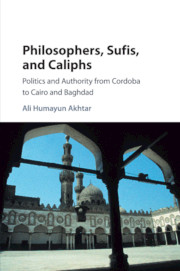
- Cited by 6
-
Cited byCrossref Citations
This Book has been cited by the following publications. This list is generated based on data provided by Crossref.
Shahi, Deepshikha 2019. Introducing Sufism to International Relations Theory: A preliminary inquiry into epistemological, ontological, and methodological pathways. European Journal of International Relations, Vol. 25, Issue. 1, p. 250.
Bellver, José 2020. Los comienzos de la teología racional en al-Andalus: Ibn Masarra y su Refutación de Sobre la Filosofía primera de al-Kindī. Al-Qanṭara, Vol. 41, Issue. 2, p. 323.
Bacik, Gokhan 2020. Islam and Muslim Resistance to Modernity in Turkey. p. 25.
Everdell, William R. 2021. The Evangelical Counter-Enlightenment. Vol. 9, Issue. , p. 315.
Güven, İbrahim Fevzi 2021. SUFİZMİN ULUSLARARASI İLİŞKİLER TEORİSİNE KATKISI: EPİSTEMOLOJİK, ONTOLOJİK VE METODOLOJİK AÇILIMLARA İLİŞKİN BİR ARAŞTIRMA. Akademik Platform İslami Araştırmalar Dergisi, Vol. 5, Issue. 2, p. 351.
Jiménez-Castillo, Pedro 2022. La expansión agrícola en Šarq al-Andalus. Al-Qanṭara, Vol. 43, Issue. 2, p. e24.
- Publisher:
- Cambridge University Press
- Online publication date:
- July 2017
- Print publication year:
- 2017
- Online ISBN:
- 9781316855669
- Subjects:
- Middle East Studies, Islam, Area Studies, History, Religion, Middle East History


